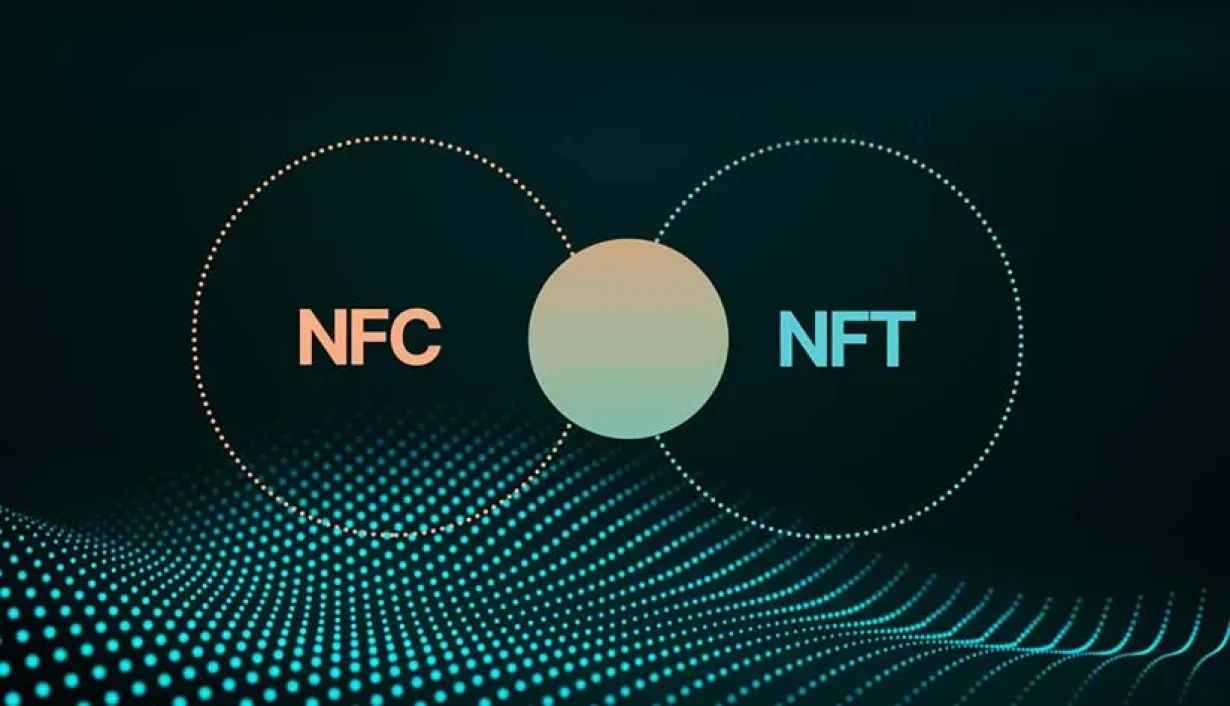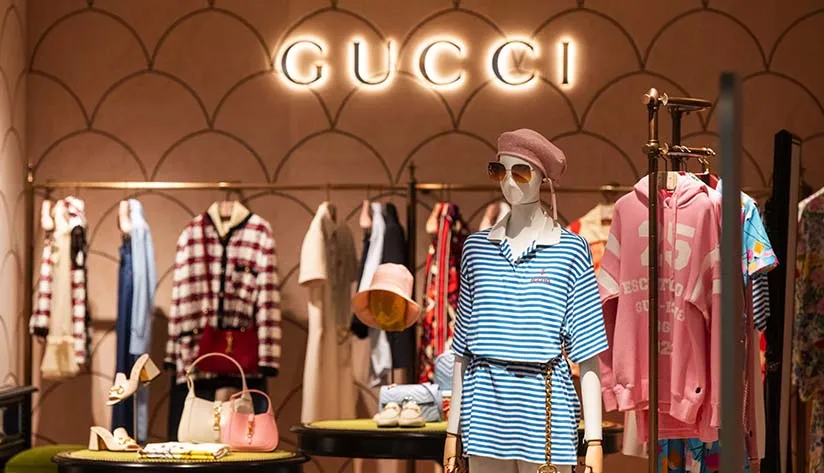
In today’s crowded fashion landscape, grabbing attention is tough, but building lasting customer loyalty is the real challenge. Consumers crave unique, personalized experiences that go beyond the transactional. So, how can fashion brands cut through the noise and forge deeper connections? Enter the powerful duo: NFT (Non-Fungible Token) and NFC (Near Field Communication) technology.
These aren’t just tech buzzwords; they represent a new frontier for customer engagement. By smartly integrating unique digital assets (NFTs) with interactive physical products (via NFC), brands can craft immersive fashion loyalty solutions that truly resonate.
This article explores how fashion brands can leverage the synergy of NFT and NFC to revolutionize their loyalty programs, offering customers exclusive digital value alongside physical purchases and cultivating genuine, long-term brand affinity.
1. Demystifying the Tech: What Are NFT and NFC?
Before diving into their combined power, let’s quickly understand each technology.
NFT: Unique Digital Ownership
An NFT (Non-Fungible Token) is a unique digital asset verified on a blockchain. Unlike cryptocurrencies, each NFT is one-of-a-kind and can represent ownership of virtually anything digital – art, music, videos, virtual fashion items, or even exclusive access passes. Its uniqueness and verifiable ownership make it perfect for digital collectibles and proving authenticity.
For fashion, NFTs unlock incredible creative potential. Brands can issue limited-edition digital art, virtual versions of runway looks (digital fashion NFTs), certificates of authenticity, or exclusive membership tokens. This adds a layer of verifiable exclusivity that resonates with modern consumers seeking uniqueness.
NFC: The Physical-to-Digital Bridge
NFC (Near Field Communication) is a short-range wireless tech enabling data exchange with a simple tap or proximity. Think contactless payments or tapping your phone to pair Bluetooth speakers. In fashion, tiny NFC tags embedded in clothing, accessories, or packaging act as gateways.
When a customer taps their smartphone to an NFC-enabled product, the tag can instantly launch a website, verify authenticity, display product details, or – crucially for loyalty – trigger digital interactions and rewards. It seamlessly connects a physical item to a rich digital experience.
2. The Magic Combo: How NFC + NFT Elevate Loyalty Programs
The real innovation happens when NFC and NFT work in concert. Imagine this:

A customer purchases a limited-edition jacket. They tap their phone to the NFC garment tag sewn inside. Instantly, they’re prompted to claim a unique NFT associated with that specific jacket. This NFT could be:
- A Digital Twin: A 3D virtual version of the jacket for use in metaverses.
- Exclusive Artwork: A piece of digital art commissioned for the collection.
- VIP Access Token: Granting entry to future brand events or early product drops.
- Enhanced Loyalty Points: A special points bonus added to their account.
- Certificate of Authenticity: Verifiably proving the item’s legitimacy on the blockchain, leveraging secure NFC chips for added trust.
This “phygital” (physical + digital) link transforms a simple purchase into an engaging experience, delivered seamlessly via readily available NFC tag solutions for brands.
3. Beyond Points: How NFT & NFC Reshape Loyalty Dynamics
Integrating these technologies moves loyalty programs far beyond simple discounts.
Creating Truly Engaging Experiences
Instead of passively collecting points, customers actively engage. Scanning an NFC tag becomes an interaction, unlocking a digital surprise (the NFT). This adds gamification and discovery to the ownership experience, making it more memorable and fun than traditional programs.
Rewards That Resonate: The Power of Personalization
NFTs enable hyper-personalized rewards. Based on purchase history linked via NFC scans, brands can deliver tailored digital assets. Buy from the sustainable line? Get an NFT artwork celebrating eco-consciousness. A long-time VIP? Receive an NFT granting early access to the next collection. This level of personalization, managed through sophisticated NFT reward platforms, makes customers feel seen and valued.
Building Brand Addiction: Cultivating True Loyalty
NFTs introduce collectibility and potential secondary market value. Customers are motivated not just by discounts, but by the desire to acquire unique, potentially appreciating digital assets tied to the brand they love. Owning a collection of brand NFTs fosters a deeper sense of belonging and “digital membership,” significantly boosting customer stickiness.
Style Meets Substance: Sustainability & Innovation
Digital rewards like NFTs reduce the need for physical loyalty cards or paper coupons, aligning with sustainability goals. Using blockchain for verification also showcases a brand’s commitment to innovation and transparency, appealing to modern consumer values.
From Purchase to Post: Amplifying Social Buzz
Unique NFT rewards are inherently shareable. Customers are likely to showcase their digital collectibles on social media, generating organic buzz and user-generated content for the brand. Brands can further fuel this by creating communities or contests around their NFT holders.
4. Brands Leading the Charge: Early Examples
While still evolving, several fashion giants are experimenting with this phygital blend:

- Adidas & BAYC: Collaborated on limited sneakers linked (conceptually or potentially via NFC) to exclusive NFTs and virtual experiences, tapping into the digital collectible craze.
- Nike & RTFKT: Nike’s acquisition of digital fashion house RTFKT led to virtual sneakers paired with physical counterparts, with NFTs acting as digital certificates and potentially unlocking future utility, often linked via NFC or QR codes on the physical item.
- Gucci Vault: Gucci explored digital collectibles through its Vault platform, offering NFTs representing digital art or brand heritage, laying the groundwork for future phygital integration.
These examples highlight the growing trend of bridging physical fashion with unique digital ownership and experiences, often facilitated by technologies like NFC.
5. Making It Happen: Implementing Your Phygital Loyalty Program
Launching an NFT and NFC-powered loyalty program requires careful planning.
Choosing Your Tech Toolkit
Selecting the Right NFC Tags
The physical link starts here. Consider:
- Form Factor: Heat press NFC garment badges are ideal for apparel, while adhesive NFC sticker tags work for packaging or accessories. Choose tags durable enough for the product’s lifecycle.
- Security: For verifying authenticity or delivering valuable NFTs, opt for secure NFC chips (like NXP NTAG DNA series) that offer anti-cloning features.
- Supplier: Partner with NFC tag providers experienced in fashion applications.
Navigating the NFT Platform Landscape
Where will your NFTs live?
- Public Marketplaces: Platforms like OpenSea offer wide reach but less brand control.
- Custom Platforms: Building a bespoke brand NFT platform offers maximum control over branding and user experience but requires more investment. Consider NFT platform development services.
- Blockchain Choice: Select a blockchain (e.g., Polygon, Solana, Flow) balancing transaction speed, cost, and environmental impact.
Wallet Strategy
Customers need a digital wallet (like MetaMask or Coinbase Wallet) to receive and store NFTs. Provide clear instructions or potentially integrate with user-friendly wallet solutions.

Marketing Your Phygital Experience
Get the word out effectively:
- Social Media Blitz: Tease NFT rewards, partner with influencers, run contests, build a community (e.g., on Discord).
- In-Store Activation: Demonstrate the NFC tap-to-claim process, offer exclusive in-store NFT drops.
- Digital Channels: Clearly explain the program on your website, use email marketing to announce new NFT rewards and exclusive perks for holders.
6. The Future of Loyalty is Phygital
The fusion of NFT and NFC technology isn’t just a fleeting trend; it’s shaping the future of customer loyalty in fashion. It offers a powerful way to deliver unparalleled personalization, exclusivity, and engagement, bridging the gap between the physical products customers love and the digital world they inhabit.
While technical hurdles and user education require attention, the potential rewards – deeper customer connections, enhanced brand perception, and a competitive edge – are immense. Now is the time for forward-thinking fashion brands to explore NFC and NFT integration services and craft the next generation of loyalty experiences.
FAQs:
1. How does NFC enhance fashion loyalty programs specifically?
NFC provides a seamless link between a physical garment/accessory and a digital experience. A simple tap allows customers to instantly verify authenticity, access exclusive content, or claim loyalty rewards like NFTs, making engagement effortless and interactive directly from the product itself.
2. What value do NFTs add to a fashion loyalty program?
NFTs offer unique, verifiable digital ownership. As loyalty rewards, they can represent exclusive digital collectibles, virtual fashion items, access passes to events, or proof of VIP status, creating desirable, potentially tradable assets that enhance the program’s appeal beyond simple discounts.
3. How do NFC tags and NFTs technically work together?
An NFC tag embedded in a product stores a unique URL or identifier. When scanned by a smartphone, this triggers an action, often directing the user to a web platform where they can authenticate (sometimes using the tag’s unique ID for verification) and claim their specific NFT reward, which is then transferred to their digital wallet.
4. What are the main challenges in implementing these programs?
Key challenges include the cost and complexity of integrating both NFC hardware (sourcing reliable NFC tags) and NFT platform software, ensuring robust security for both the tags and digital assets, educating consumers on how to use NFC and manage NFTs/wallets, and choosing sustainable blockchain solutions.
5. Can customers resell the NFT rewards they earn?
Yes, typically. One of the core features of NFTs is their ownership and transferability on secondary marketplaces. This potential for resale can add perceived value to the loyalty rewards, making the program more attractive to collectors and digitally savvy consumers.

RFID Antenna UHF
15-Meter Cable for UHF RFID Fixed Reader
UHF Tag
4″x2″ 860-960MHz UHF RFID Label RFID M4D
UHF Tag
4″x4″UHF RFID Label Alien H3 | ISO18000-6C
RFID Antenna UHF
5-Meter Cable for UHF RFID Fixed Reader
HF Card
ABS RFID KEY-FOB Tag RFID Classic 1K
HF Card
ABS RFID KEY-FOB Tag RFID Classic 4K
HF Card
ABS RFID KEY-FOB Tag RFID Ultralight C
HF Tag
ABS RFID KEY-FOB Tag RFID Ultralight EV1
LF Card
ABS RFID KEY-FOB Tag ATA5577
LF Card
ABS RFID KEY-FOB Tag EM4200
HF Card
ABS RFID KEY-FOB Tag EM4305
HF Card
ABS RFID KEY-FOB Tag RFID TAG 213